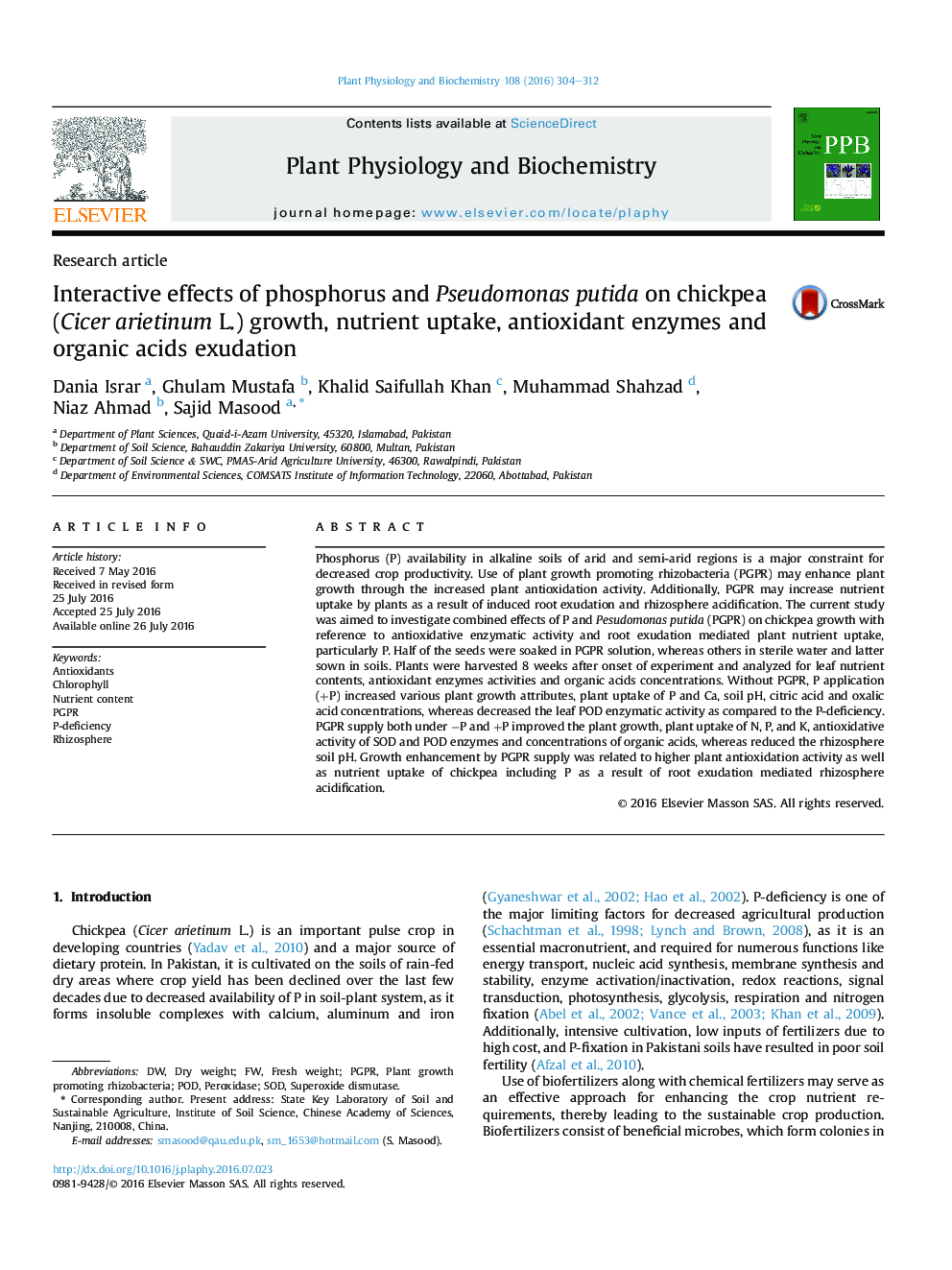| کد مقاله | کد نشریه | سال انتشار | مقاله انگلیسی | نسخه تمام متن |
|---|---|---|---|---|
| 2014717 | 1541913 | 2016 | 9 صفحه PDF | دانلود رایگان |

• Without inoculation, P-deficiency was responsible for plant growth reduction.
• Growth enhancement by PGPR in both P-treatments was due to plant-induced antioxidation activity.
• PGPR supply also enhanced the root exudation mediated leaf nutrient accumulation in chickpea.
• PGPR inoculation not only increased the P uptake by plants, but also improved the N and K nutrition.
Phosphorus (P) availability in alkaline soils of arid and semi-arid regions is a major constraint for decreased crop productivity. Use of plant growth promoting rhizobacteria (PGPR) may enhance plant growth through the increased plant antioxidation activity. Additionally, PGPR may increase nutrient uptake by plants as a result of induced root exudation and rhizosphere acidification. The current study was aimed to investigate combined effects of P and Pesudomonas putida (PGPR) on chickpea growth with reference to antioxidative enzymatic activity and root exudation mediated plant nutrient uptake, particularly P. Half of the seeds were soaked in PGPR solution, whereas others in sterile water and latter sown in soils. Plants were harvested 8 weeks after onset of experiment and analyzed for leaf nutrient contents, antioxidant enzymes activities and organic acids concentrations. Without PGPR, P application (+P) increased various plant growth attributes, plant uptake of P and Ca, soil pH, citric acid and oxalic acid concentrations, whereas decreased the leaf POD enzymatic activity as compared to the P-deficiency. PGPR supply both under −P and +P improved the plant growth, plant uptake of N, P, and K, antioxidative activity of SOD and POD enzymes and concentrations of organic acids, whereas reduced the rhizosphere soil pH. Growth enhancement by PGPR supply was related to higher plant antioxidation activity as well as nutrient uptake of chickpea including P as a result of root exudation mediated rhizosphere acidification.
Journal: Plant Physiology and Biochemistry - Volume 108, November 2016, Pages 304–312